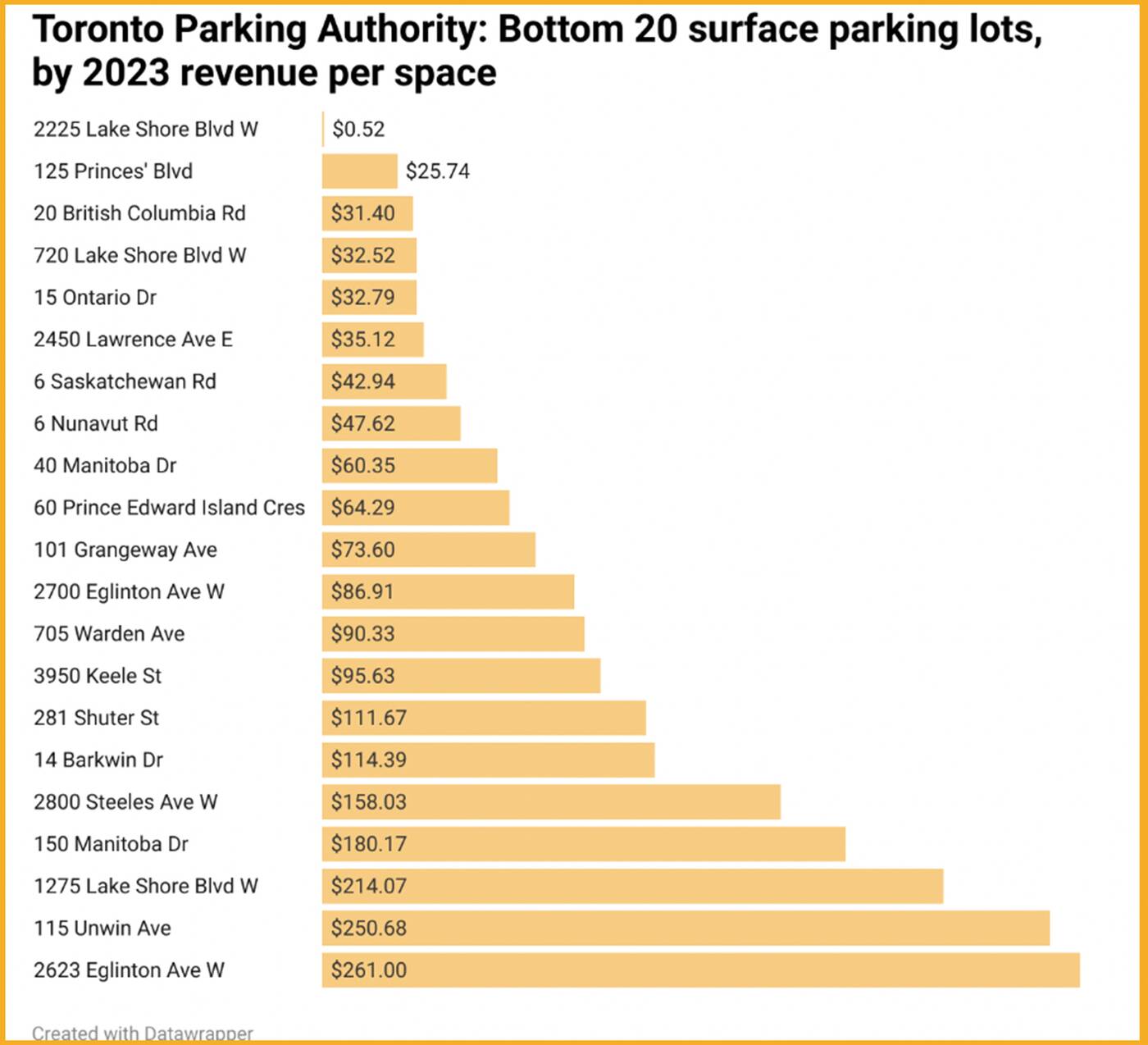
Here are Toronto's least-used parking lots that are most likely to become housing
As the City of Toronto continues to assess which of its parking lots (and other properties) could be suitable to develop into more housing, residents may be wondering if their local Green P is one of those on the chopping block.
For drivers, business owners and those simply curious, municipal politics expert Matt Elliott has broken down which lots in the city are the least profitable, and thus most likely to go, in his latest City Hall Watcher newsletter this week.
Not everyone is happy about Toronto's plan to redevelop hundreds of parking lots https://t.co/GLTLKn6AuC
— blogTO (@blogTO) March 12, 2024
While some of the busiest Green Ps are raking in tens of thousands of dollars per space per year, some are earning just cents for the city, begging the question of how the land they take up could be better utilized for the public.
Per the figures compiled by Elliott, the deadest surface lot in the city is located at 2255 Lake Shore Blvd. W on the peninsula home to Humber Bay Park West and Etobicoke Point. This lot had a per-space revenue of a measly $0.52 in 2023, with $119 brought in all year from 228 spaces.

The City-owned surface parking areas that had the lowest revenues per space last year. Chart from Matt Elliott's latest City Hall Watcher newsletter.
Also named among the least-lucrative parking areas based on last year's numbers are 125 Princes' Blvd. (earning $25.74 per space), 20 British Columbia Road ($31.40 per space), 720 Lake Shore Blvd. W ($32.52), 15 Ontario Drive ($32.79), 2450 Lawrence Ave. E. ($35.12), 6 Saskatchewan Road ($42.94) and 6 Nunavut Road ($47.62).
Elliott notes that the parking at Exhibition Place appears particularly underused given that so many of the attraction's lots are on the list of the bottom 20 earners, but a representative from the venue informed blogTO that the lots are not actually City owned, and thus would not be up for conversion.
On the other end of the spectrum is 74 Yorkville Ave., which collected a staggering $20,890.66 per space, adding up to $3.66 million from 175 spots. The garage under Nathan Phillips Square at 110 Queen St. W managed to pull in $8.09 million, the most of any lot last year, from its 1,636 spots.
Toronto neighbourhood fighting back against plan to turn parking lot into park https://t.co/xhVDD8GEf5
— blogTO (@blogTO) March 19, 2024
While housing targets are top of mind for the too-quickly growing city, province and country at large, some citizens have expressed concern about the impact to not only local motorists, but businesses who would understandably want nearby parking options for those customers who drive.
Google Street View
Latest Videos
Latest Videos
Join the conversation Load comments







